Serious messages on celebration night
Serious messages on celebration night
PHILIPPINE PRESS CLUB-ONTARIO’S 10TH ANNIVERSARY
By Joseph Smooke
Joyous renditions of the Canadian and Philippine national anthems set a festive tone for the 10th Anniversary of the Philippine Press Club-Ontario (PPC-O), but the night was about journalism and as such was not without controversy.
Fifteen men and women converged on a snowy December 17, 2001 at the Silayan Community Centre in downtown Toronto to consider Paul dela Cruz’s concept of creating a new media organization in Ontario, according to emcee Melinda Rustia. Ten years later, on Dec. 2, 2011, about 190 media professionals and supporters gathered at Rembrandt Banquet Hall in Scarbrorough to celebrate this initiative, foresight and commitment from the Filipino-Canadian community to work together to support the PPC-O.
The group now sustains, according to Consulate General Pedro Chan, more Filipino news organizations in Toronto than exist in Manila.
“We write and broadcast to inform, to report, comment, advocate, challenge, etc. Importantly, we are aware of our duties and responsibilities and accountability in our community and society.” Current PPC-O President, Rose Tijam, set the tone for the evening. This night was not just for gazing at the past. This is a vibrant organization taking very seriously its responsibility for the future.
Thomas Saras, President and CEO of the National Ethnic Press and Media Council of Canada took this opportunity to express his reverence for “the past struggles and challenges” and recognized the “need for some direction for the future.”
PPC-O Vice President Hermie Garcia outlined in the evening’s programme six “great initiatives” for the PPCO to take on as it defines its aspirations. These are to: raise the standards of journalism in the community; assist young and aspiring journalists; take editorial stands on important issues such as immigration and temporary work programs; link PPCO media workers with other sectors of the ethnic media; and develop “an independent stance on the part of many of our journalists in relation to government officials, whether Philippine or Canadian, and business and interest groups.”
This last point became especially relevant during the event itself as controversial remarks by Consulate General Chan and Philippine Ambassador to Canada Leslie Gatan struck at deeply emotional issues.
“I was witness to two commemorations of the Ampatuan Massacre and that was really a very black mark on our treatment of media. But of course it was the work of only one family it seems, not the government,” said Chan referring to Nov. 23 when the PPCO led an intensely emotional commemoration of the Maguindanao Massacre on the First International Day to End Impunity, and the rally the day before outside the Consulate General’s office.
Further fueling this controversy were remarks by Philippine Ambassador to Canada Leslie Gatan who told the crowd that the Philippines is politically mature, and is the country in Asia with the freest media. Ambassador Gatan said to the crowd, “Tell me of another Asian country that is as mature and I’ll tell you the kind of politics they have. So, please don’t feel insecure about your own country.” Yet, international media watchdogs do not support his rosy assertions.
The Committee to Protect Journalists (CPJ) lists the Philippines as the third most dangerous country in the world for Journalists based on its “Impunity Index.” On Nov. 24, just a day after the first International Day to End Impunity, there was yet another shooting of a Philippine journalist.
“CPJ research shows that deadly, unpunished violence against journalists often leads to vast self-censorship in the rest of the press corps.” And, as CPJ further reports, “President Benigno Aquino has pledged to successfully prosecute those responsible for the 2009 massacre of dozens of journalists and others in Maguindanao province. But trial proceedings thus far have been marred by threats and bribes targeting witnesses.”
“In today’s world there are certain freedoms. The most important of all for a free democratic state should be the freedom of information,” Saras said. These inspiring but sobering words reminded the audience that if this principle had been observed “by the State” on the date of the Maguindanao Massacre, the journalists and civilians who were slaughtered would still “be around as a testament of the respect of life, of integrity, and of the freedom of the press safeguarded by the government of Manila.”
A challenging array of future and current controversies were on full display at this event interspersed with beautiful musical performances and concluded with joyous dancing and socializing. The event itself marks a decade of hard work that has grown a considerable presence for the Filipino-Canadian community in the realm of ethnic media in Canada just as it showcased in real time the challenges that await its members as they left the event and returned to their daily work.
“Only through the full and free expression of public opinion can the springs of democracy be renewed and its institutions kept alive and capable of functioning,” Saras said. “By a free press we mean a press which is untrampled by prejudice and unfettered by selfish bias which will serve no cause but only the one of truth, and will recognize no master but justice.”
As the evening’s speeches signified, to a politician, the truth may be political, but to a journalist, the truth is a moral obligation disseminated to uphold basic universal human rights.
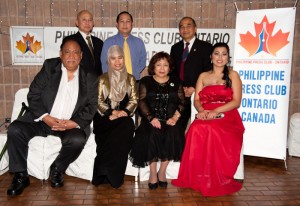
PPC-O officers. Seated, from left: Jess Cabrias (director), Riza Khamal (secretary), Rose Tijam (President), Joy Sarmiento (director). Standing, from left: Hermie Garcia (VP), Jonathan Canchela (director) and Mogi Mogado (treasurer). 2 PHOTOS: JOSEPH SMOOKE
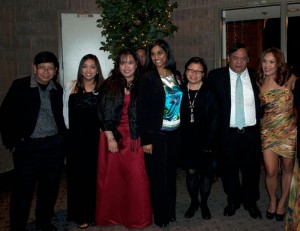
From left: Joe Damasco, guests and MP Rathika Sitsabaiesan, Ambassador Leslie Gatan and Eva Agpaoa. PHOTO: TAN CANCHELA
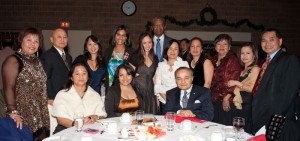
From left, seated: Julie Nanquil, Asha Rajak, Thomas Saras. Standing, from left: Virgie Tigas, Hermie Garcia, Dyan Ruiz, MP Rathika Sitsabaiesan, Ma-Anne Dionisio, Ned Blair, Mila Garcia, Connie Sorio, Au de Lara, Grace Tabije and Bert de Lara.
5 PHOTOS: JOSEPH SMOOKE
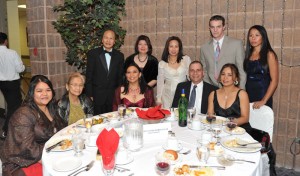
Seated, from right: Cerena Masu (OFWC Queen 2011) and husband Robert Dexter, Annabelle Migalbin, president of the Ontario Filipino Women’s Club (OFWC), Flora Blass Racho (auditor), Bianca Migalbin (secretary). Standing, from right: Marjorie Nartatez (OFWC Princess 2011) and husband Caba Glass, Ann Yamoto Miles Tariga, and journalist Jojo Taduran of PPC0. (Photo:Eugene Deocareza)
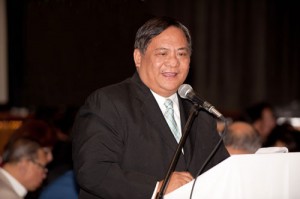
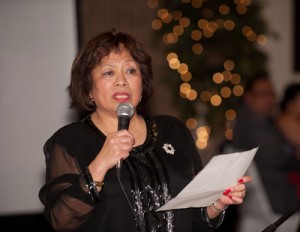
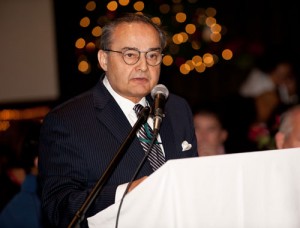
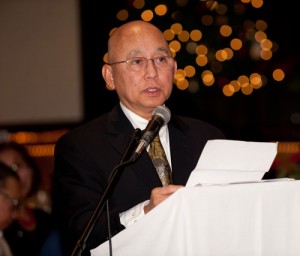
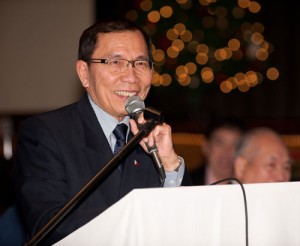
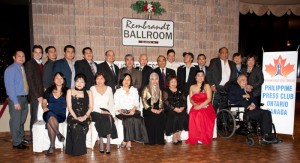
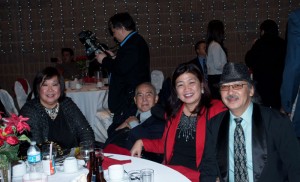
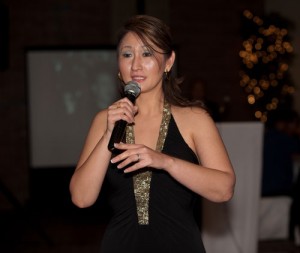
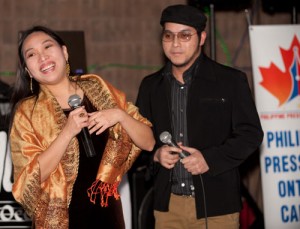
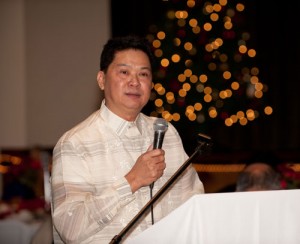
Comments (1)